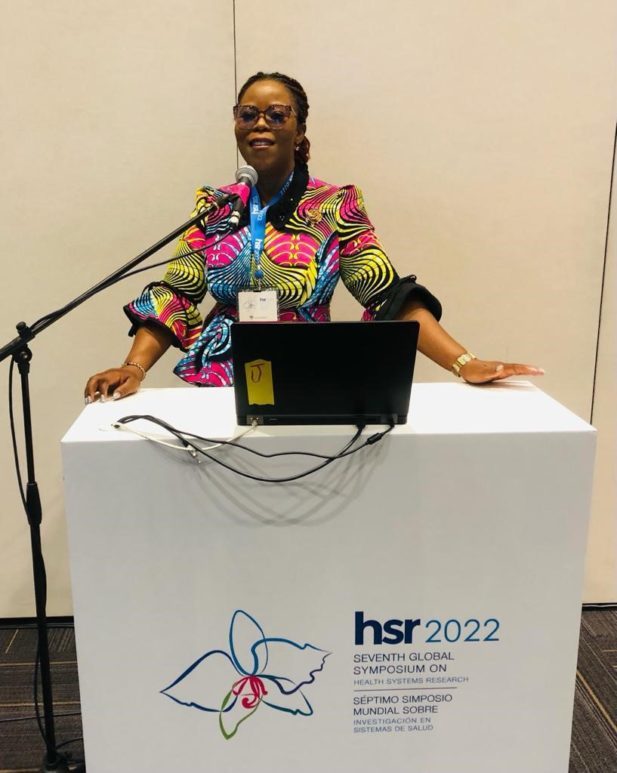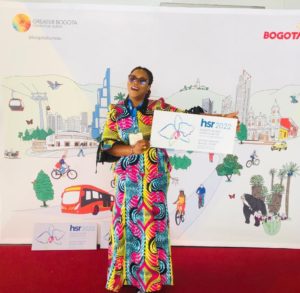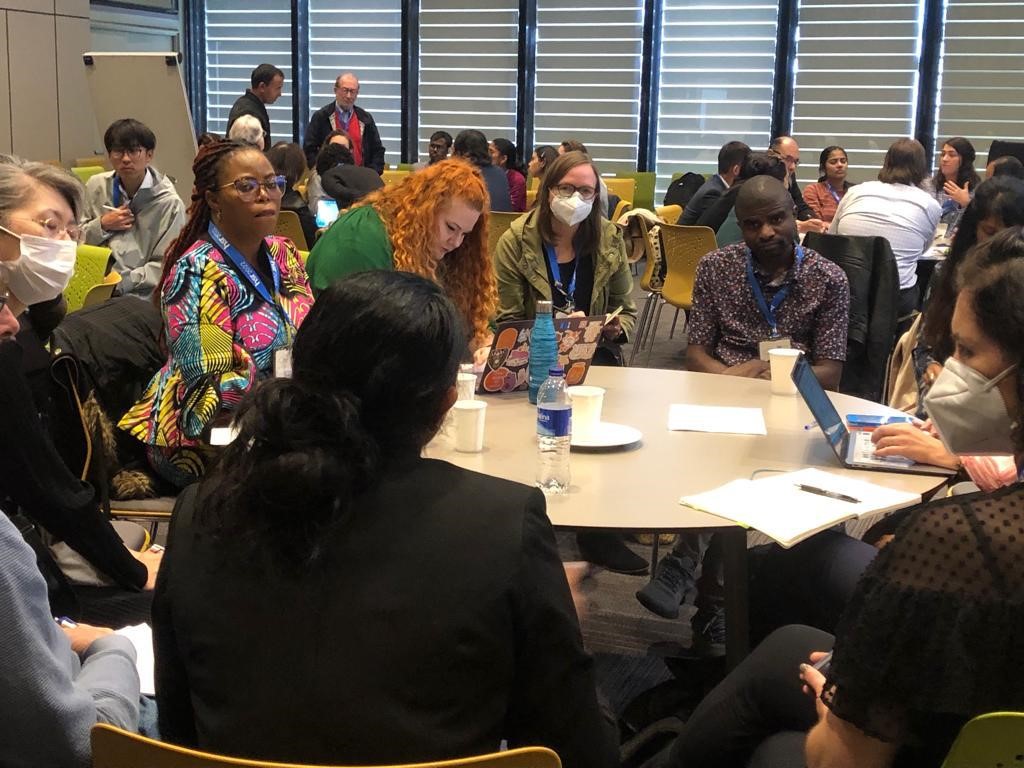
Blog: HSR2022 – A Journey of Lessons and Persistence for a Policy Implementer and Budding Health Systems Researcher from an LMIC
By Patience Ami Mamattah, Municipal Health Director and PhD student, Ghana
Photos credit: Patience Mamattah
Stakeholders and researchers from LMIC cities are at the forefront of the healthcare challenges related to rapid urbanisation, and need to be central in the conversations on how to approach them. We need to be fully represented in the key events that shape the global health discourse.
Therefore, when I heard of the scholarship for the Seventh Global Symposium on Health Systems Research in Bogota – Colombia, I didn’t hesitate to apply, as:
- The conference fees and associated costs of airfares, accommodation and expenses are prohibitively expensive.
- I have over twenty years experience of working in the health sector, however I had never attended an international conference; this was going to be my first.
As a young and upcoming health systems researcher, policymaker, implementer, and a PhD student, attending the symposium was going to allow me the opportunity to learn, broaden my scope and help me meet and network with other industry players. I was awarded the scholarship, and my excitement was on the rooftop! I shared the good news with the CHORUS Ghana Team; other colleagues also applied for the scholarship but were unsuccessful.
The goal of this blog is to share some experiences I had as an emerging researcher, policymaker, and implementer and a PhD student on the structural difficulties imposed on international travel for applicants from Low-Middle-Income Countries (LMICs), and the need for those involved to make the process of travelling on such ventures a little easier.
Some of the many challenges I faced before travelling to Bogota, Columbia included:
- Language Barriers: I was linked up to the Delegate Relations Coordinator by the conference organisers to provide me with administrative support and ensure all processes were well completed including acquiring a Colombian visa. The first difficulty I encountered was the language barrier – all communications from visa authorities to me were in Spanish. Google translate was very useful!
- Visa Challenges: Acquiring feedback from visa authorities was equally daunting. My emails were not responded to, which was very frustrating, and I was prevented access to the Columbia Embassy due to security. I was finally able to get in touch with one of the workers who provided me with an embassy email address easing the communication for me and yielding feedback. I was issued the first visa that was due to expire in August 2022, before the conference started! I had to commence my email exchanges with the Colombian visa authorities again to have the anomaly rectified. Based on the incessant emails from me coupled with phone calls to the embassy, my visa was eventually amended to the right conference days.
- Transit Visas: I was finally issued the correct Colombian visa, only to discover I also needed a Schengen visa to transit through Schiphol in the Netherlands as a citizen of Ghana. However Netherlands transit visas can take up to 45 days to process. I filled out a visa application form online only to realize I could not submit it, nor could I choose an appointment date because the system was blocked. I had to therefore attempt to visit the visa application centre in Accra without an electronic appointment to submit my documents. After several weeks I did not receive any feedback. During which time my flight was missed, and the conference was beginning. Upon a series of frustrating administrative processes including sending several emails to retrieve my passport, I picked it up from the Netherlands embassy at 3 pm, on 31st of October 2022 when the conference had begun in Bogota.
- Accessing the Flight: The scholarship team at HSR were great and kindly booked me another flight. On the day of my departure at the airport, an officer of the airline said my visa QR code could not be verified and as such I could not be checked in with some of her utterances being ‘I think your visa is expired,’ ‘your visa has been cancelled by the Colombia authorities,’ and ‘why didn’t you leave with those who left on Friday, October 28th the Friday?’ among other comments. After many phone calls and emails with the conference organisers, who contacted the authorities in Columbia to confirm the validity of my visa, I was finally able to check in with 10 minutes to go before take off. I began my 24-hour flight through Istanbul.
The feeling was great when I arrived at Eldorado Airport regardless of the challenges I had gone through. I was excited and optimistic, looking forward to my full participation in the conference as well as benefiting as a PhD student, policymaker, implementer and world café presenter/facilitator.
Our session on urban health was well attended and a lot of interest was shown in the work of the Ghana CHORUS team. This was a key motivator for me.
The conference had a wide and interesting programme, although the CHORUS session was one of the few that focused specifically on urban health. Key issues in urban health such as multisectoral collaboration are central to progressing towards Universal Health Care, and these were not explored as much as I hoped. My key takeaway from the plenary session was how we can break individual professional silos in healthcare settings and work as a team for the benefit of our populations.
In conclusion, there needs to be a focus on how to strengthen the health systems at the city and local government levels, as urbanization and its associated healthcare challenges are real and growing phenomena that we cannot do away with. However, stakeholders and researchers from the LMIC cities who are at the forefront of these issues need to be central in the conversations on how to approach them and be fully represented in the key events that shape the global health discourse. To achieve this there must be a very deliberate effort to ease international travel barriers for LMIC attendees.
